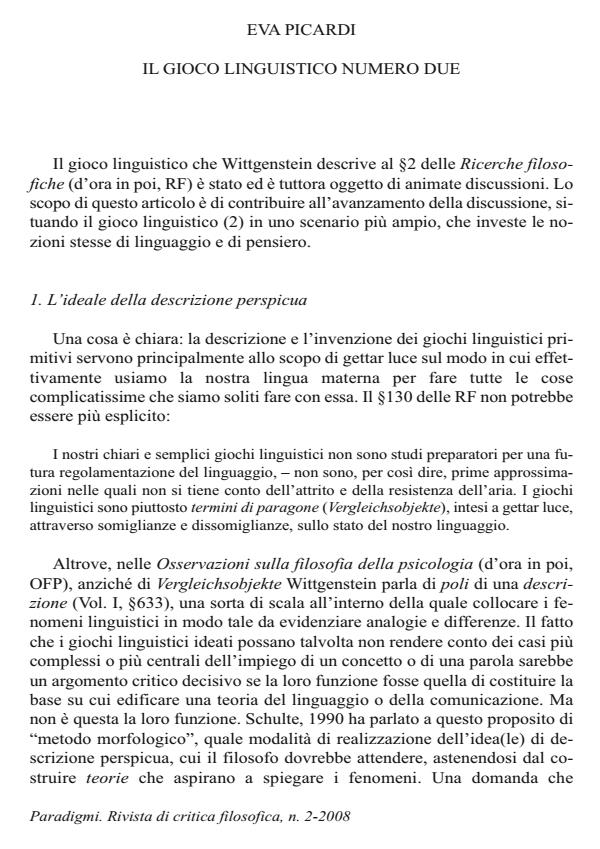Il gioco linguistico numero due
Titolo Rivista PARADIGMI
Autori/Curatori Eva Picardi
Anno di pubblicazione 2008 Fascicolo 2008/2
Lingua Italiano Numero pagine 26 P. 43-68 Dimensione file 112 KB
DOI
Il DOI è il codice a barre della proprietà intellettuale: per saperne di più
clicca qui
Qui sotto puoi vedere in anteprima la prima pagina di questo articolo.
Se questo articolo ti interessa, lo puoi acquistare (e scaricare in formato pdf) seguendo le facili indicazioni per acquistare il download credit. Acquista Download Credits per scaricare questo Articolo in formato PDF

FrancoAngeli è membro della Publishers International Linking Association, Inc (PILA), associazione indipendente e non profit per facilitare (attraverso i servizi tecnologici implementati da CrossRef.org) l’accesso degli studiosi ai contenuti digitali nelle pubblicazioni professionali e scientifiche.
The Language Game No. 2 - After spelling out what I consider to be the philosophical significance of the Builders’ game in Wittgenstein’s philosophical writings after 1930, I will concentrate on the Builders’ game as it is presented and discussed in PI. In particular, I will focus on the bearing of the idea primitiveness on the notions of thinking and of concept mastery that Wittgenstein sees implicit in the Augustinian picture of language. In the second part of my paper I will deal with the (different) criticisms raised by Rhees and Brandom as regards the Builders’ game, and I will argue that languagegame No. 2 and its extensions are a good starting for an investigating the relationship between action, speech and thought. In the third part of my paper I focus on the other end of the spectrum, away from primitiveness and well into the jungle of our sophisticated language-games. Following in the footsteps of the Builders’, I suggest that we draw a parallel between Wittgenstein’s technique of extending a primitive language and Dummett’s employment of the notion of a conservative extension for exploring the idea of harmony between the different aspects of our use of words and sentences.
Eva Picardi, Il gioco linguistico numero due in "PARADIGMI" 2/2008, pp 43-68, DOI: